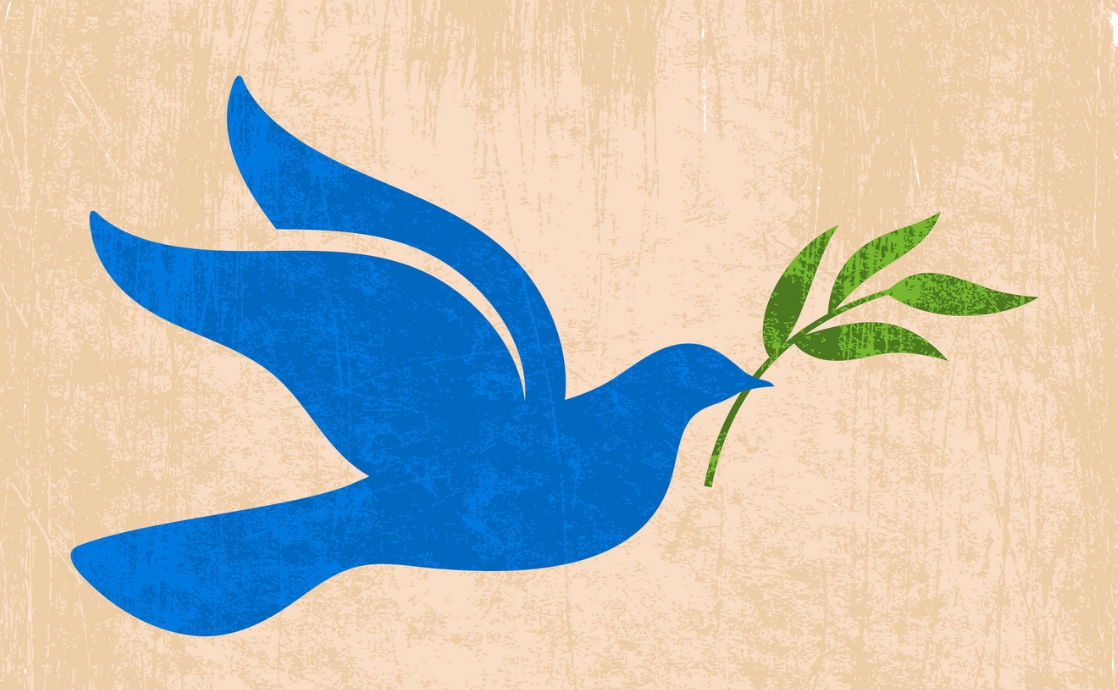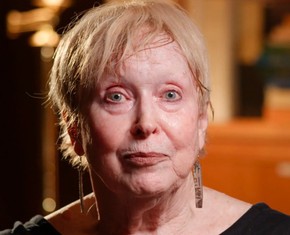The views expressed in our content reflect individual perspectives and do not represent the authoritative views of the Baha'i Faith.
Every year on September 21st, the United Nations observes the International Day of Peace, the one day set aside each year to celebrate humanity’s peaceful accomplishments.
So what do we have to celebrate this year?
Well, the war in Afghanistan ended recently. The shooting there has largely subsided, and regardless of how you might feel about the outcome, we can all welcome the cessation of hostilities in any war. When innocent people stop dying, that’s a cause for celebration.
Peace, the Baha’i teachings tell us, is always preferable to war.
RELATED: The Great Heroes of Peace
Since its beginnings in 1863, the Baha’i Faith has advocated a unified global federation of nations – a parliament of humanity – to bring about an end to war, hostility and violence. Baha’u’llah, the prophet and founder of the Baha’i Faith, said “The earth is but one country, and mankind its citizens.” Baha’u’llah, while still a prisoner of the Ottoman Empire for teaching his new Faith, wrote to the world’s political and religious leaders to demand that they cease all warfare and create a system of global governance designed to end war forever.
After his father’s passing, Baha’u’llah’s son and successor Abdu’l-Baha, became a world-renowned advocate of the Baha’i peace plan. He traveled throughout the Middle East, Europe, and North America during the early part of the 20th century, encouraging world leaders and the general populace to stop attempting to solve their conflicts with war. Abdu’l-Baha wrote:
… those who thirst for blood should forsake their savagery, and those who are barbed of claw should turn gentle and forbearing, and those who love war should seek instead for true conciliation; it is that the brutal, their talons razor-sharp, should enjoy the benefits of lasting peace; that the foul should learn that there is a realm of purity, and the tainted find their way to the rivers of holiness.
All Baha’is abhor violence and war, and believe that every human being has the right to live in peace and the responsibility to require that their governments cease waging war on each other. Baha’u’llah, in his letters to the kings and rulers, said:
The time must come when the imperative necessity for the holding of a vast, an all-embracing assemblage of men will be universally realized. The rulers and kings of the earth must needs attend it, and, participating in its deliberations, must consider such ways and means as will lay the foundations of the world’s Great Peace amongst men. Such a peace demandeth that the Great Powers should resolve, for the sake of the tranquillity of the peoples of the earth, to be fully reconciled among themselves. Should any king take up arms against another, all should unitedly arise and prevent him. If this be done, the nations of the world will no longer require any armaments, except for the purpose of preserving the security of their realms and of maintaining internal order within their territories. This will ensure the peace and composure of every people, government and nation.
RELATED: No Unity, No World Peace
Because of Baha’u’llah’s and Abdu’l-Baha’s strong and consistent anti-war emphasis, the international Baha’i community supported the establishment of the League of Nations in the 1920’s and the United Nations in the 1940’s. In this formal statement to the U.N. Human Rights Commission in 1947, called A Baha’i Declaration of Human Obligations and Rights, the worldwide Baha’i community outlined its vision of a united, supra-national global government that would permanently rid the world of war:
World order has become legally possible, socially imperative, and divinely ordained. The principle of federation has already united previously independent communities diverse in race, language, religion and size of population. The nations can find just expression for their legitimate rights and needs through proportionate representation in a supranational body. Until world citizenship is guaranteed as a social status, the human rights and privileges developed in the past are undermined by the disruption of modern society.
The order herein affirmed implies the establishment of a world commonwealth uniting all nations, races, creeds and classes and safeguarding the autonomy of its state members and the personal freedom and initiative of the individuals that compose them. The commonwealth would consist of a world legislature functioning as trustees of the whole of mankind and enacting the laws required to regulate the life, satisfy the needs and adjust the relationships of all races and peoples. Its world executive, backed by an international Force, would carry out the laws and decisions decreed by the world legislature, and safeguard the organic unity of the whole commonwealth. Its world tribunal would adjudicate and render final and compulsory verdict in any and all disputes arising between the various elements constituting the universal system.
Baha’is everywhere believe that a unified world commonwealth will help humanity cease its destructive wars, and invite everyone who shares a vision of lasting peace to join us in working toward that glorious goal.
















Comments
Sign in or create an account
Continue with Googleor